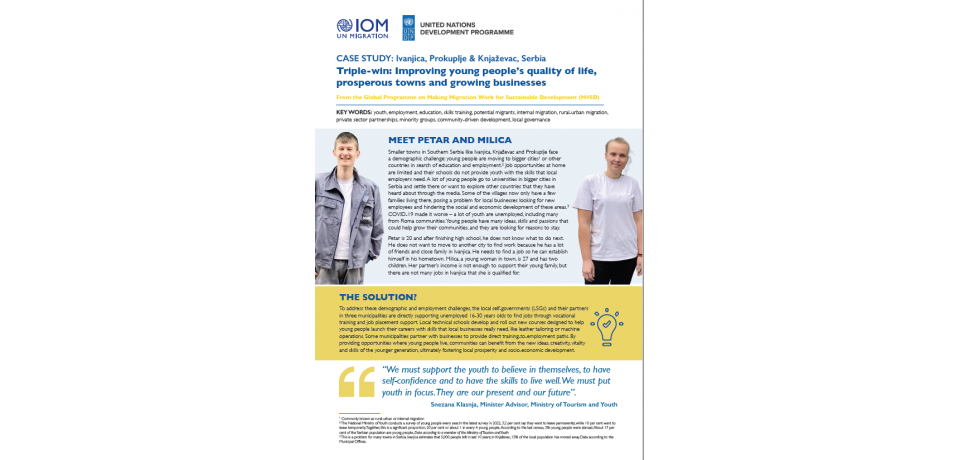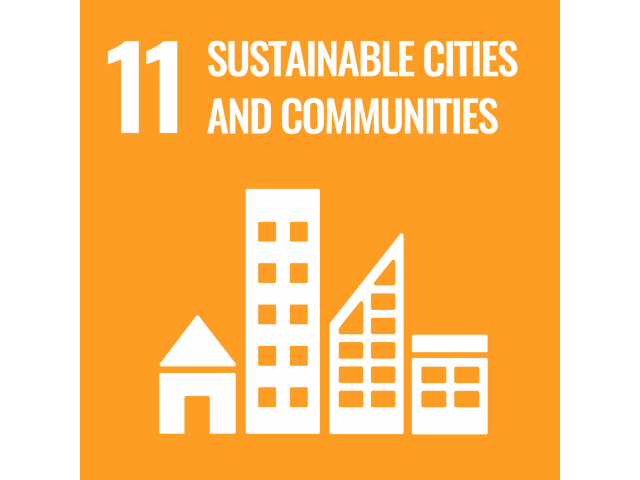CASE STUDY: Triple-Win: Improving Young People’s Quality of Life, Prosperous Towns and Growing Businesses in Serbia
Related Sustainable Development Goals and Global Compact for Migration Objectives
Petar and Milica are two young people who live in a small town in Southern Serbia. But small and medium-sized cities like Ivanjica, Knjaževac and Prokuplje face the same demographic challenge: young people are moving to bigger cities or other countries in search of education and employment. Young people have many ideas, skills and passions that could help grow their communities, and they are looking for reasons to stay. Petar is 20 and after finishing high school, he does not know what to do next. Milica, a neighbour, is 27 and has two children, but her partner’s income is not enough to support their young family and there are not many jobs in Ivanjica that she is qualified for.
How do local self-governments and their partners in Serbia design and support initiatives to provide training and employment opportunities for young people? How can solutions that put youth at the heart ensure that communities benefit from the new ideas, creativity, vitality and skills of the younger generation, ultimately fostering local prosperity and socio-economic development? How do local and national partners work hand-in-hand to combine employment training, skilling initiatives and youth, employment and migration policies? And how do we include everyone in these approaches, including young women and those from minority communities like the Roma?
Read the case study to find out how and read 5 tips that we learned from putting this approach into practice, including: supporting and building capacities of dedicated Municipal Youth Offices, ensuring courses for young people are teaching people skills that local businesses really need, establishing policies that connect migration, youth and employment and partnering with the private sector and local companies so that newly trained youth have clear employment pathways through apprenticeships and full-time employment.
These activities are carried out through the IOM-UNDP Global Joint Programme Making Migration Work for Sustainable Development (M4SD) which supports Serbian local and national governments, the private sector and community organizations to establish community-led solutions that empower migrants and displaced people and create inclusive opportunities for all. By ensuring new careers for young people in their home municipalities, more people may remain in smaller towns, helping neighbourhoods to flourish, Serbia’s rural and urban economies to prosper and social bonds to thrive (Sustainable Development Goals 4, 8 and 11).
Learn more about our work in Serbia.

